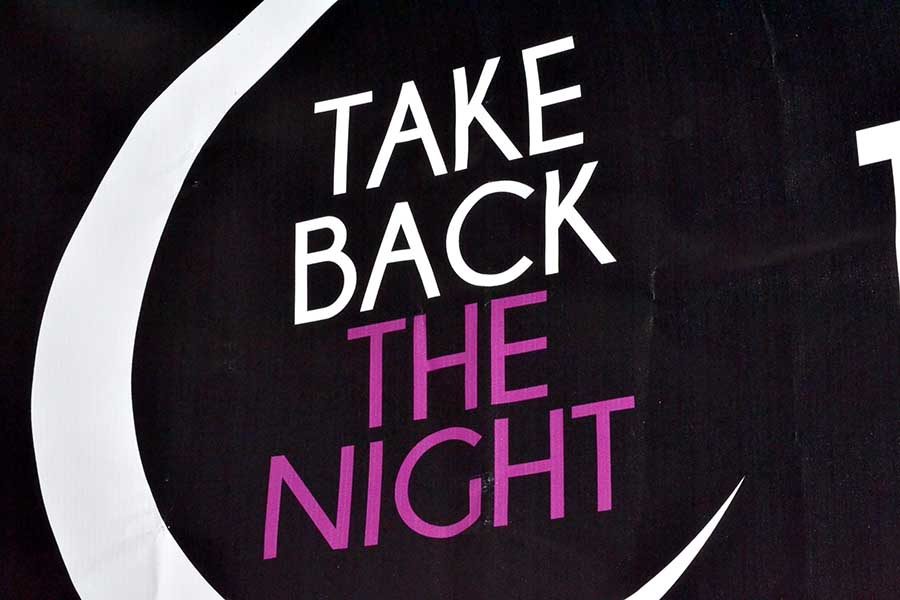Take Back Our Country
May 4, 2016
Sexual harassment has always been a problem. And sadly, the fact is it might always be a problem if things keep going the way they’re going. At College of Dupage’s Take Back the Night, women who were survivors of assault shared their stories. We at the Courier were both inspired at the strength and courage of the storytellers and infuriated at the acceptance of rape culture in today’s society.
According to the Cleveland Rape Crisis Center, “Rape is the most common violent crime on American college campuses. One in four college women will be the victim of sexual assault during her academic career.” According to the National Center for Education Statistics, “Females are expected to account for the majority of college students: about 11.5 million females [in the US] will attend in fall 2015, compared with 8.7 million males.”
What that means, is collectively 2,875,000 girls will be sexually assaulted before they graduate. So why is the discussion of rape taboo?
We as a country have never truly wanted to talk about it. It’s something we think is a personal matter, that it’s the business of the families involved. Many people believe that it’s just a fact of life. We at the Courier do not accept that fact.
The whole concept of “boys will be boys” has caused completely skewed rape and sexual harassment prevention systems throughout schools.
For example, many school dress codes are becoming more and more conservative, telling their female students they are not allowed to show their shoulders or stomachs. They tell the girls this is because it can be distracting for the boys.
Many people argue that a woman may be “asking for it” based on how she dressed, or that she should have known better.
Both of these are telling girls, sometimes as young as 11 or 12, that it’s their fault. That it’s their job to not be desirable because sometimes boys can’t handle themselves, and that girls need to accommodate them.
Girls are now taught at a young age how to defend themselves if someone tries to attack them. At a lot of schools, this is required curriculum. So if girls are learning self defence, why aren’t boys being taught sexual assault and rape are bad? Why aren’t they required to put in the same effort to stop such issues?
You want to see something chilling? Look at a girls’ keys. It’s likely that they will have some sort of self defense, be it a rape whistle or pepper spray, anything really. Girls are taught to use their keys as weapons if need be.
It’s important to note, however, that women are not the only victims of such an awful crime. Men are an often overlooked group of people who deal with sexual harassment and rape culture on a daily basis, and often a discussion of male harassment is considered more taboo. According to the Rape, Abuse and Inscest National Network, one in 33 men will be the victims of an attempted or successful sexual attack. However, more often than not, they will not report the crime, for any number of reasons. The underlying issue is the lack of awareness the country has for such an event.
It’s also important to note a large portion of the LGBT community is at higher risk for sexual assault. According the the Human Rights Campaign, “Among transgender racial minorities, 24 percent of transgender American Indians, 18 percent of transgender people who identified as multiracial, 17 percent of transgender Asians, and 15 percent of Black transgender respondents experienced sexual assault in K-12 education settings – much higher rates than students of other races. Transgender women respondents experienced sexual assault more often than their transgender male peers.”
People like to pass the blame of rape and sexual assault onto the victims. Sometimes the most vulnerable people get attacked because it’s easy, because people think they won’t fight back. But they will, and they have been. Events like COD’s Take Back the Night are happening at a national level. Women are stepping up and telling their stories. People of all genders are speaking out against harassment and assault.
Some people might be uncomfortable, but the fact is it’s an uncomfortable topic. We believe conversation is key to fixing these problems at the government level. There are few laws in place protecting women from such events, but our nation’s vocalization is gaining traction and people are noticing. It is the first step to our culture’s change, and we believe it will keep growing. We just have to keep fighting.




















